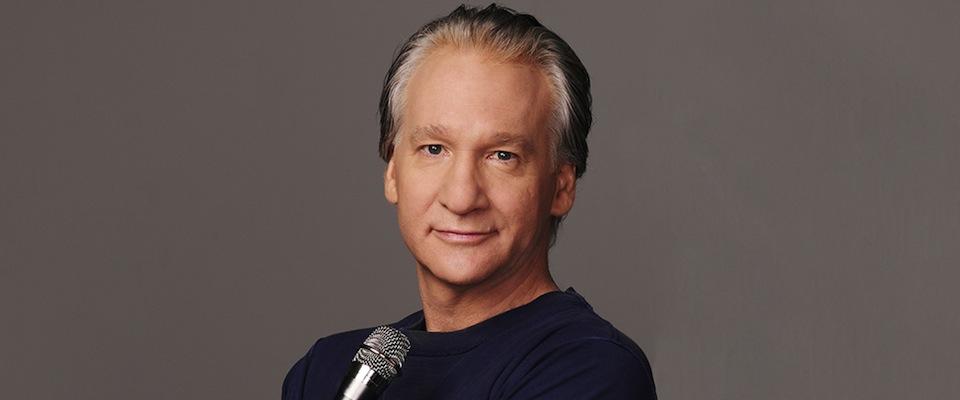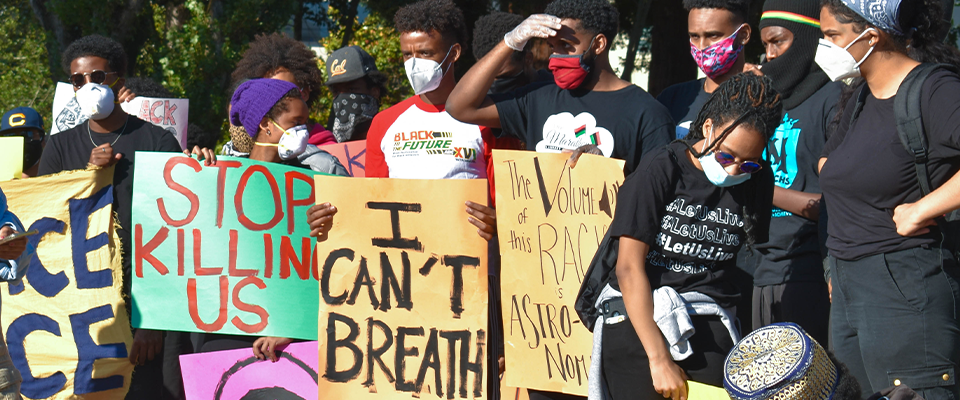The UC Berkeley administration announced today that it will not rescind an invitation to comedian Bill Maher to address students at the winter graduation ceremony on December 20, overriding a decision by the student group involved in selecting Maher last August.
“The Californians,” a student group currently comprised of 16 members, reversed an earlier decision to invite Maher after some students, including many Muslims, objected to the selection. An online petition at Change.org, authored by ASUC Senator Marium Navid, blasted Maher as “a blatant bigot and racist who has no respect for the values UC Berkeley students and administration stand for.” By today, more than 4,000 people had signed the petition, which included excerpts of Maher’s previous comments ridiculing religion, likening retarded children to dogs, and claiming, “Islam is the only religion that acts like the mafia that will fucking kill you if you say the wrong thing.”
Maher is certainly a lightning rod, but while some view him as a show-boating provocateur, others, like the LA Press Club, have hailed him as a champion of free speech.
Maher was selected as commencement speaker in August—exactly how he was chosen is subject to dispute—but some of Maher’s more recent statements about Islam on his HBO talk show, and the resulting petition, led the The Californians to reconsider. Yesterday they reconvened and agreed the invitation should be rescinded. The Californians’ Student Director Gina Hwang notified the university: “We decided that Bill Maher’s presence takes the focus away from the celebration that the target audience has and directs it instead away from it.” Hwang also stressed that the decision was not made “for any personal reasons–no matter what each individual believed free speech entails, no matter what each individual believed politically, religiously, or any identity.”
But the administration, in a statement released this evening, said it “cannot and will not accept this decision, which appears to have been based solely on Mr. Maher’s opinions and beliefs, which he conveyed through constitutionally protected speech. For that reason Chancellor Dirks has decided that the invitation will stand, and he looks forward to welcoming Mr. Maher to the Berkeley campus. It should be noted that this decision does not constitute an endorsement of any of Mr. Maher’s prior statements: indeed, the administration’s position on Mr. Maher’s opinions and perspectives is irrelevant in this context, since we fully respect and support his right to express them. More broadly, this University has not in the past and will not in the future shy away from hosting speakers who some deem provocative.”
Maher tweeted: “Every news outlet asking me 4 comment on this Berkeley thing but then i remembered: I’VE got a show!And thats where I’ll address it,Fri nite.”
The Berkeley blowup is but the latest in a spate of contentious disputes over commencement speakers—disputes that are increasingly forcing university administrators and students to wrestle with questions of free speech and civil discourse, and prompting headlines such as “Can the Commencement Speech Be Saved?” In the wake of student protests last spring, Former Secretary of State Condoleezza Rice pulled out of addressing Rutgers University, International Monetary Fund chief Christine Lagarde withdrew from speaking at Smith College, and former UC Berkeley Chancellor Robert Birgeneau bowed out as commencement speaker for Haverford College in Pennsylvania. In a letter to protestors, Birgeneau said he was the victim of critics’ “untruthful, violent verbal attacks.”
Defenders of provocative, even incendiary, speakers say that divergent viewpoints are a staple of higher education, and that, further, it is virtually impossible to find interesting speakers who come controversy-free. Critics argue that a commencement speech is a monologue with no opportunity afforded for a free exchange of ideas, and that a university confers a special honor on a speaker whom it asks to deliver its commencement address.
The tension raises the question of how speakers are chosen.
The Californians’ Hwang said that it was a Berkeley alum who initially connected Maher to University Relations, and that Helena Weiss-Duman, the university’s director of external relations, brought Maher’s name to the student group. “They told us—to paraphrase—’you don’t have to search any more.’ I don’t know why they’re acting as if the decision was all the Californians’. University Relations had a big say in the selection.”
Asked whether, as was reported in the student newspaper The Daily Californian, University Relations had the final say in the decision to invite Maher, university spokeswoman Janet Gilmore would only say, “The Californians decide.”
Hwang further added that although the university recently told The Californians that it was up to the student group to determine whether to disinvite Maher, ultimately university administrators overruled the student group’s decision.
University of California Student Regent Sadia Saifuddin, too, was critical of the university’s handling of the matter. Earlier in the week, she said, “From where I stand, I feel the university is more concerned about having a big-name speaker than with making the students feel honored and safe.” Saifuddin was also a signatory to the Change.org petition opposing Maher’s appearance.
But others had urged the university not to be swayed by the protests. Daily Cal reader Steve Gregg wrote, “Acquiescence to such a blatant suppression of free speech would demonstrate a weak commitment to democracy. You don’t need freedom of speech to protect popular opinions. You need it to protect unpopular opinions. Very often, unpopular opinions prove to be correct. There is nothing Islam needs more than criticism and correction.” Even some who disagree vehemently with Maher say he deserves to deliver the address as planned. On ABC’s popular talk show The View, the four co-hosts were in rare agreement. Whoopi Goldberg said she hoped the student objectors change their minds; Rosie O’Donnell suggested students turn their backs to Maher during his speech to demonstrate their objection. “The history of Berkeley isn’t banning speech that offends you,” said Nicolle Wallace, who was communications chief for former President George W. Bush and is herself a Cal grad. “The history of Berkeley is that that campus and those students have been on the front lines in the fight for free speech.”
In its statement, the university said “unfortunate events” surrounding the selection “demonstrate the need to develop a new policy for managing commencement ceremonies. The new process will ensure that these events are handled in a manner commensurate with our values and enduring commitment to free speech. We will be announcing the new policy as soon as it is ready.”




















